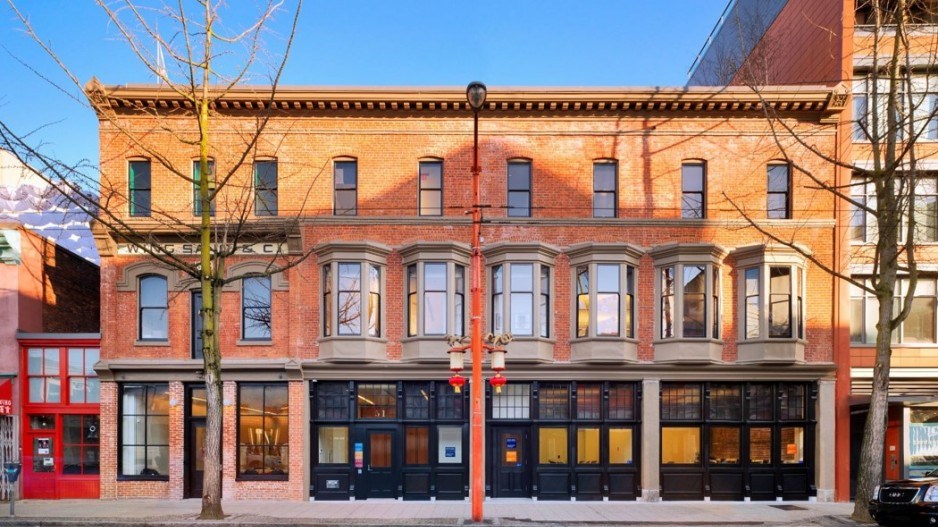The B.C. government is upping its investment in Vancouver's Chinese Canadian Museum to more than $48.5 million, thanks to an additional $10 million announced this afternoon.
The new money is to help renovate the museum's home in the 1889-built Wing Sang Building, which is the oldest building in Chinatown. It will also help with operating costs after the museum's expected opening on July 1.
Past investments have included capital to buy the Wing Sang Building, initial operational support, an endowment and other money.
“This transformational funding from the province will support us as we put together the finishing touches towards the museum's official opening, constructing a space that is esthetically pleasing and impactful, while sharing the stories of Chinese Canadians with the public in meaningful ways,” said Melissa Karmen Lee, CEO, Chinese Canadian Museum.
“The impact of offsetting operational costs also means more time and care is dedicated to developing the visitor experience, essential to the museum's success.”
The museum will feature space for permanent and temporary exhibits, programs, events and student learning.
Minister of Tourism, Arts, Culture and Sport Lana Popham said that her government has been working closely with the Chinese Canadian community in order to bring Canada's first museum dedicated to the Chinese Canadian history to life.
“The historic Wing Sang Building in Vancouver Chinatown will bring people from all over the world to learn about the significant contributions of Chinese Canadians to British Columbia and Canada, both past and present," she said.
Improving the attraction of Chinatown has long been an aim for tourism marketers, and the museum is seen by those involved as a key part of the area's renewal.
Walt Judas, CEO, Tourism Industry Association of BC said he believes the museum will help contribute to the "vibrancy of Vancouver's Chinatown."
The Federal government in February announced $1.8 million to help with Chinatown's revitalization.
The Vancouver Chinatown Foundation said more than $1.3 million of that funding would be used to modernize buildings, including the Chinese Cultural Centre, Chinatown Storytelling Centre and Dr. Sun Yat-Sen Classical Gardens, with new lighting, signage and awnings.
Destination Vancouver's CEO Royce Chwin recently hailed Vancouver's new city council as "needed" in order to change the deteriorating business and tourist climate in Chinatown and Gastown.
Homeless and drug-addicted people who have long gravitated to the Downtown Eastside, during the pandemic shifted to also congregate in Gastown and Chinatown.
"We needed to have different leadership and different thinking taking place because clearly what was going on was not working," Chwin said at a Greater Vancouver Board of Trade luncheon in February.
Chinatown merchants pleaded with the former city council, which was largely ousted in October, to fund more police on the streets and provide more financial support to keep people from falling through the cracks and into the downward spiral of homelessness, drug addiction and crime.
"We have tour operators in Europe right now who have stopped selling [tours to] Chinatown and Gastown because they're worried about safety," Chwin said. "They're worried about what the impact would be on their customers, and therefore their business, which is a shame because the businesses in Gastown and Chinatown deserve to have business come to them."
[email protected]



